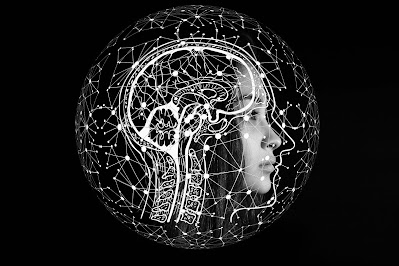
Introduction: AI
Basically we use the word AI Technology or Artificial intelligence but out of them many persons did know how this AI started and who invents this. Artificial intelligence (AI) is defined as the study of how to make computers perform tasks that humans consider difficult through the creation of intelligent agents.
In 1950s the word “AI” was introduced, and it has been improved dramatically over time with better statistical methods and greater computing power.
Biases that perpetuate discrimination have also surfaced, especially when it comes to gender and ethnicity. They must be fixed. The proliferations of inappropriate use of facial recognition are sources of legitimate. Nowadays, In various research are going on how to use AI Technology. Some of the healthcare or hospital they also planning how they can use AI Technology.
Artificial intelligence will continue to contribute to, and have a consequential effect on, all aspects of our society. In the recent years, many Despite impressive advance researchers and we still to go a long way. While approaches based on deep neural networks remain state of the art, the results obtained still lack explanation.
The concern that must be addressed, from both legal and technological perspectives. In this 2020, many responses to these issues are central to AI.
At the beginning of the 19th century, members of the Luddites, a secret organization of English textile workers, destroyed textile machinery as a form of protest. They were considered a “fraudulent and deceitful manner” of skirting standard labour practices, and it was feared that the machines would replace humans. Time has shown that this combative and in denial strategy is not sustainable. We prefer a user-centric philosophy, one that considers the many ways in which AI can benefit society.
What is intelligence?
The word “Intelligence” came from Lat. intelligere which means understand or comprehend. Intelligence is a descriptive concept and it describes certain properties of an individual or a group of individuals. There is no consensus on the definition of intelligence. Most definitions include concepts such as abstract reasoning, understanding, self-consciousness, communication, learning, planning, and problem solving.
Some definition of Intelligence
- Intelligence– ability to adapt oneself adequately to relatively new situations in life. (R. Pintner).
- Intelligence– having learned or the ability to learn to adjust oneself to the environment. (Colvin)
- Intelligence – the ability to carry out abstract thinking. (Terman)
- Intelligence – innate general cognitive ability (Burt)
- Intelligence – appropriate and adaptable behavior in given circumstances. (Psihologija, group of authors, SK, Zagreb, 1992)
- Intelligence manifests itself only relative to specific social and cultural contexts. (J. Weizenbaum, 1975)
Engineering Oriented Approach: Intelligence
- Rather than discussing if certain behavior is intelligent, we may adopt a pragmatic approach:
If a given kind of behavior (by a human, ant, elephant,robot . . . ) is interesting – how did it come to being?
- Such an approach enables us to understand the fundamental principles of artificial intelligence
- “Understanding by building”
- Cognitive science – an interdisciplinary study of the mind
What is artificial intelligence?
A branch of computer science:
Technical Sciences → Computer Science → Artificial Intelligence
The branches of Artificial Intelligence (according to Association of Computing Machinery, ACM):
- General AI (cognitive modeling, philosophical foundations)
- Expert systems and applications.
- Automated programming
- Deduction and theorem proving.
- Formalisms and methods for knowledge representation
- Machine learning
- Understanding and processing of natural and artificial languages
- Problem solving, control methods, and state space search.
- Robotics
- Computer vision, pattern recognition, and scene analysis
- Distributed artificial intelligence
Artificial Intelligence and related scientific disciplines
- Humanities: linguistics, philosophy, psychology
- Natural sciences: mathematics, biology
- Congitive science : interdisciplinary scientific study of the mind (computing, neuroscience, psychology, linguistics, anthropology)
For Reference:
I have five best book for it you can go through it. Below are the links-







0 Comments
Please don't comment spam link in the comment box.
Emoji